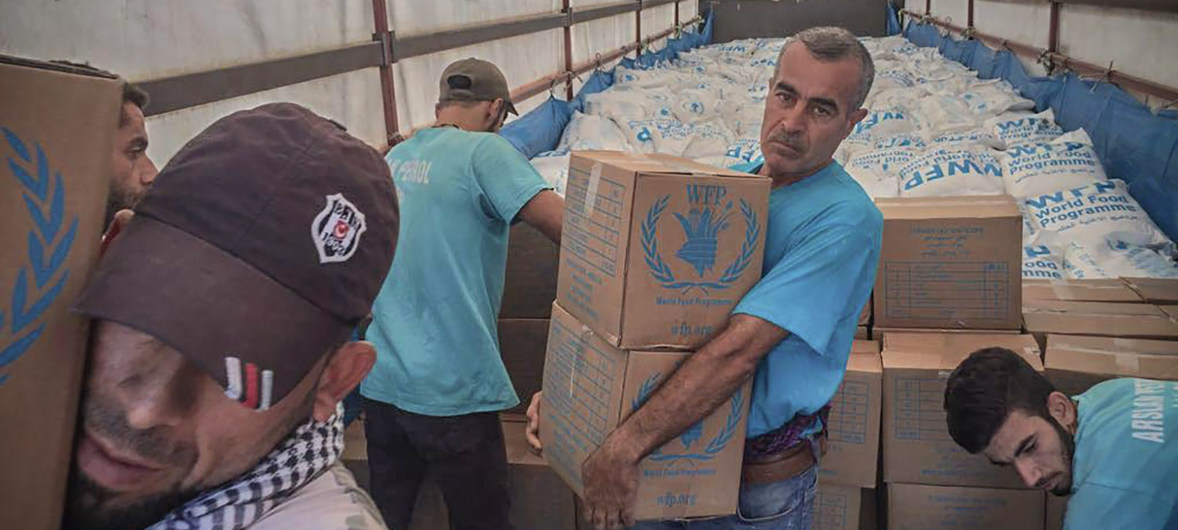BALADI NEWS
The U.N. Security Council on Friday renewed a six-year-long cross-border operation delivering aid to millions of Syrian civilians but the number of crossings and length of authorization were halved to avoid a Russian veto.
The 15-member council allowed cross-border aid deliveries to continue from two places in Turkey, but dropped crossing points from Iraq and Jordan. It also only renewed the operation for six months instead of a year.
Russia and China abstained and the watering down of the resolution prompted angry abstentions from the United States and Britain. The remaining 11 members voted in favor.
The authorization was due to expire at midnight on Friday if the Security Council did not reach a last minute deal.
Speaking to reporters after the vote, U.S. Ambassador Kelly Craft described the resolution as "grossly inadequate."
"We gave the Russians an inch and they took a million," Craft said of efforts to reach a compromise. "Syrians will suffer needlessly as a result of this resolution. Syrians will die as a result of this resolution."
The United Nations said 2.7 million people in northwestern Syria and 1.3 million in the northeast relied on aid from the cross-border operations. Council approval is needed because the Syrian government did not consent to cross-border deliveries.
Belgium's U.N. Ambassador Marc Pecsteen de Buytswerve said the crossing from Iraq was used to deliver medical aid to 1.4 million people. "Today there is no viable alternative to this crossing point," he told the council before the vote.
Britain's U.N. Ambassador Karen Pierce accused Russia of politicizing the issue.
"Syrian people have seen many sad days since 2011, but this day is potentially one of the saddest because it is the first time that a Security Council member has chosen to play politics with humanitarian assistance," Pierce told the council.
"Russia is playing dice with the lives of the Syrian people in the northeast," she said.
Russian U.N. Ambassador Vassily Nebenzia dismissed such concerns. He said the situation had changed dramatically and that Security Council action should reflect that.
"All these cries about imminent catastrophe, disaster, which northeast faces if we close one cross-border point is totally irrelevant because humanitarian assistance to that region is coming from within Syria," he told reporters ahead of the vote.
The United Nations has said it has no alternative to the cross-border operation but Nebenzia said "alternatives exist" because the area is largely controlled by the Syrian government.
Since 2014, the United Nations and aid groups have crossed into Syria from Turkey, Iraq and Jordan at four places annually authorized by the Security Council.
The council failed last month to extend the operation when Russia vetoed a draft resolution, which would have authorized three crossing points for one year, and then failed to gain enough support for its own rival text that would have allowed two crossings for six months.
It was Russia's 14th U.N. Security Council veto since the start of the Syrian conflict in 2011. (Reporting by Michelle Nichols; Editing by Sandra Maler, Grant McCool and Daniel Wallis)
Source: Thomson Reuters Foundation.

